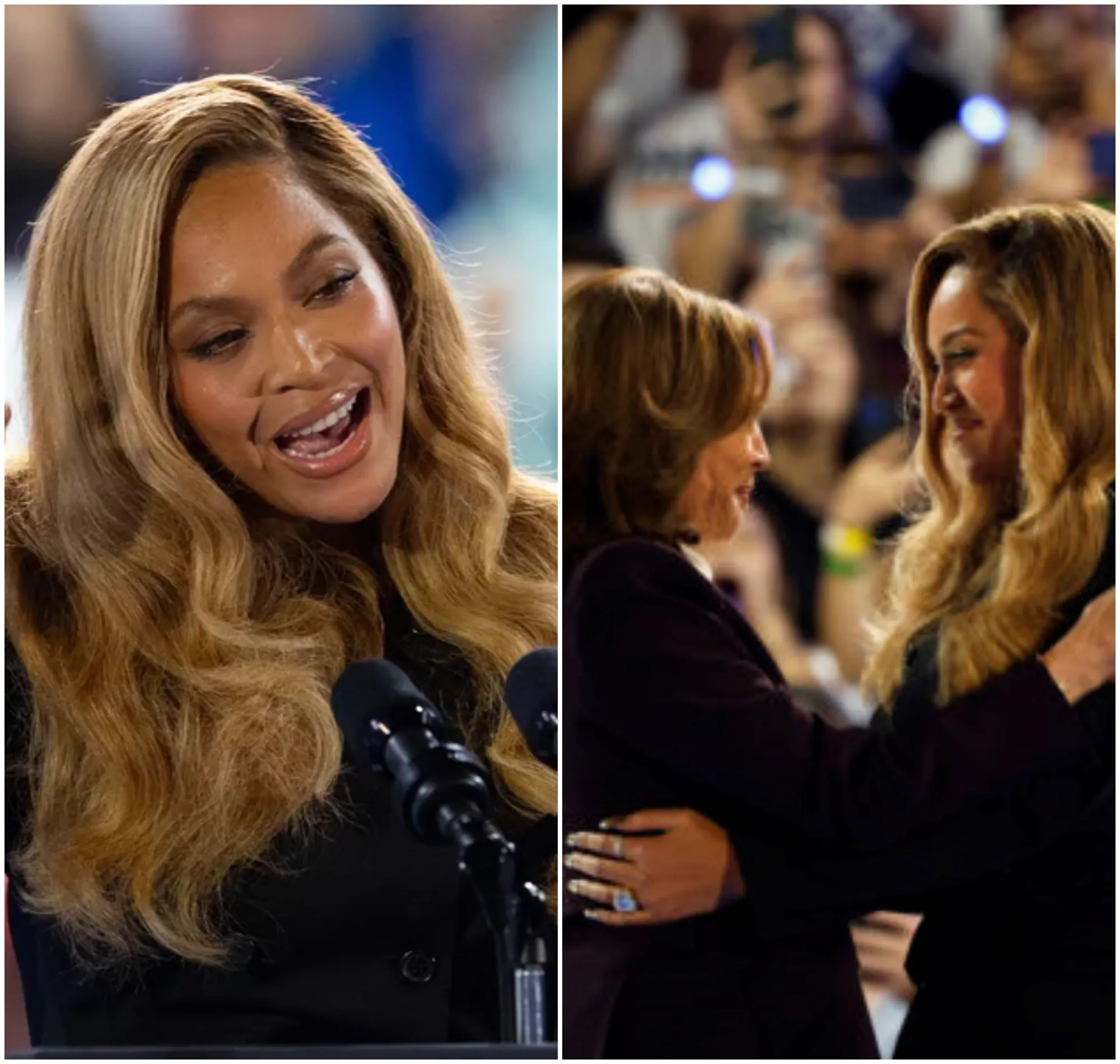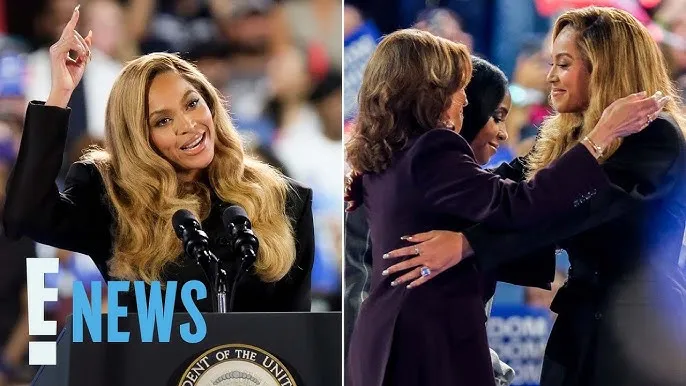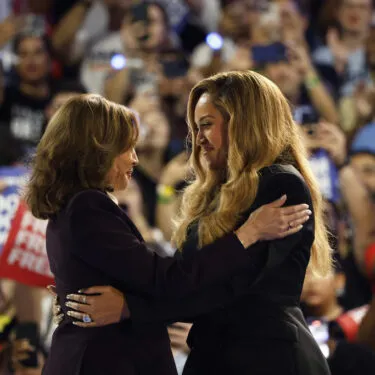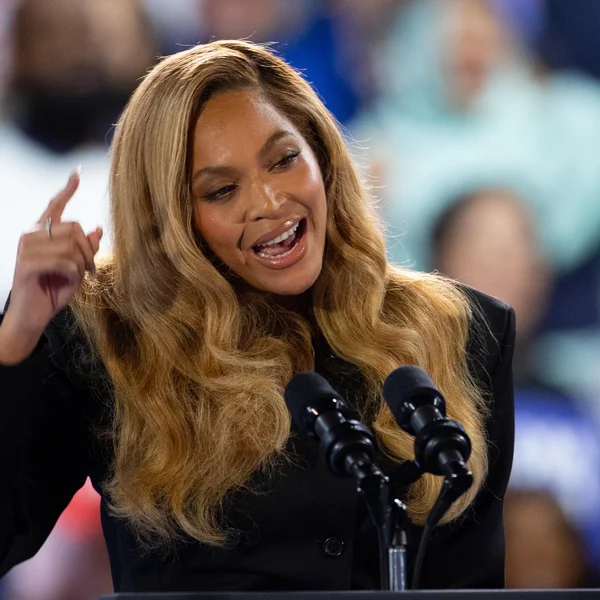Beyoncé, a global icon known for her powerful voice and activism, recently made headlines with a bold statement regarding her future performances in the United States. In a press conference, she announced that she would be boycotting certain red states, declaring, “I won’t perform in those states,” due to controversial policies and legislation that she believes are detrimental to marginalized communities. This announcement has sparked debates across social media, news outlets, and among fans, making it a hot topic in both the music and political spheres.
Beyoncé’s decision to boycott certain red states is not just a statement against specific policies but a broader call for accountability in the political landscape. The singer has been known for using her platform to advocate for social justice issues, particularly those affecting Black and LGBTQ+ communities. Her music and public persona have long served as a voice for the oppressed, and her stance on boycotting these states is no exception. While she did not specify the exact states she is referring to, it is widely speculated that her focus is on regions where laws targeting women’s rights, LGBTQ+ rights, and voting rights have been implemented or are under consideration.
The red states in question have been home to controversial legislative actions in recent years. These laws, many of which are perceived as discriminatory, have provoked significant backlash from activists, celebrities, and citizens alike. For instance, several states have passed restrictive abortion laws, limited access to gender-affirming healthcare, or introduced voter suppression measures. Beyoncé’s boycott comes as a direct response to these actions, with the singer using her status to influence change and challenge lawmakers to reconsider such policies.

Beyoncé’s boycott is not her first time using her platform to make a political statement. Throughout her career, she has used her music and public appearances to promote messages of empowerment and solidarity. From the release of her hit single “Formation,” which addresses police brutality and racial inequality, to her involvement in the Black Lives Matter movement, Beyoncé has demonstrated time and again that she is not afraid to stand up for what she believes in. Her latest move, refusing to perform in red states that enact harmful laws, underscores her commitment to advocating for equality and justice.

This move has led to a wave of support from fans, activists, and other public figures who share Beyoncé’s concerns about the growing tide of restrictive laws across the United States. Many see her decision as a powerful example of how celebrities can leverage their influence to bring attention to important social issues. By choosing not to perform in states with policies she deems unjust, Beyoncé is sending a clear message that she is unwilling to support regions that fail to uphold basic human rights and dignity.
However, Beyoncé’s boycott has also drawn criticism from some quarters. Detractors argue that her decision may alienate her fans in those states, many of whom may not agree with the political climate but are still supporters of her music. Additionally, some question the effectiveness of a boycott as a tool for enacting change, suggesting that it may only serve to polarize audiences further rather than foster meaningful dialogue. Despite this, Beyoncé has stood firm in her stance, reiterating that her actions are driven by a desire to make the world a better place for all people, particularly those who are marginalized and oppressed.
The announcement has also prompted discussions about the role of celebrities in political activism. While some applaud Beyoncé for using her influence to speak out against injustice, others feel that entertainers should remain neutral and focus solely on their craft. The debate raises important questions about the intersection of entertainment and politics and whether public figures have a responsibility to use their platform to advocate for social change.
In the wake of Beyoncé’s announcement, many are left wondering how this will impact the future of her tours and her relationship with her fanbase. If she follows through with her decision to boycott these states, it could significantly affect her concert schedule and ticket sales. However, given her global popularity, it is likely that her concerts in other states and countries will continue to draw massive crowds. Regardless of the financial implications, Beyoncé’s bold stance is a reminder that artists have the power to influence public discourse and shape the cultural conversation, both through their art and their actions.
Beyoncé’s boycott is a significant moment in her career and in the ongoing conversation about the intersection of politics, celebrity, and activism. It highlights the growing influence of musicians and other public figures in shaping public opinion and advancing social justice causes. As the debate surrounding her decision continues to unfold, it remains clear that Beyoncé is committed to using her platform to promote equality, justice, and human rights. Her announcement serves as a call to action for others in the entertainment industry to consider how they can use their influence to make a difference in the world.
In conclusion, Beyoncé’s red state boycott is more than just a statement about where she will or will not perform. It is a reflection of her unwavering commitment to standing up for what she believes in and using her voice to advocate for those who are most vulnerable in society. Whether or not you agree with her decision, there is no denying the impact that her actions have had on the conversation about politics, activism, and the role of celebrities in social change. As the issue continues to evolve, one thing is certain: Beyoncé’s influence extends far beyond the stage.